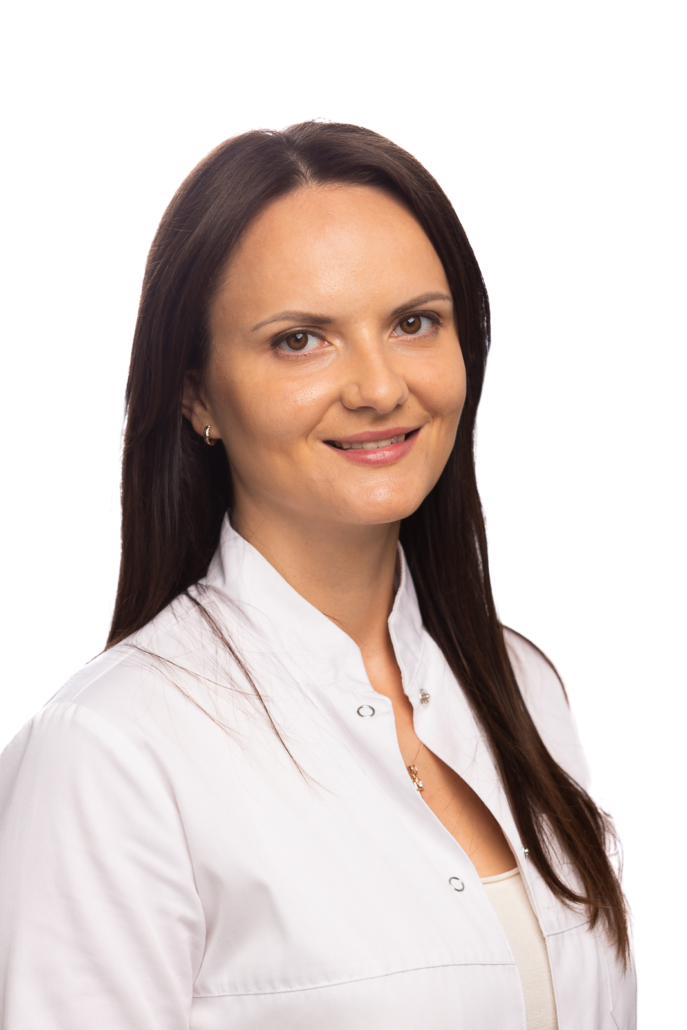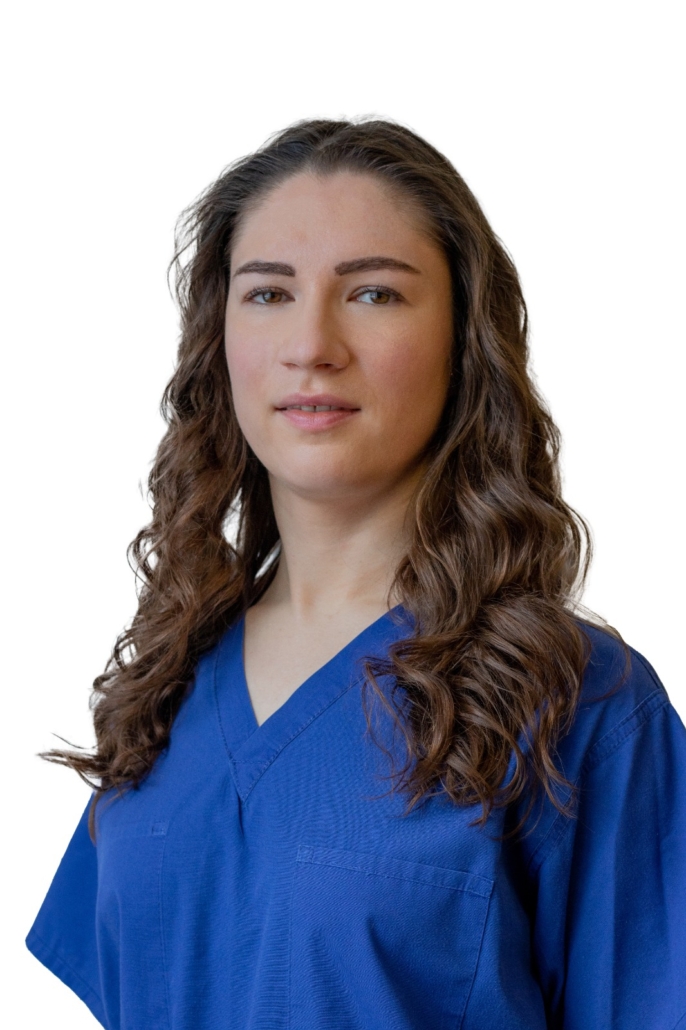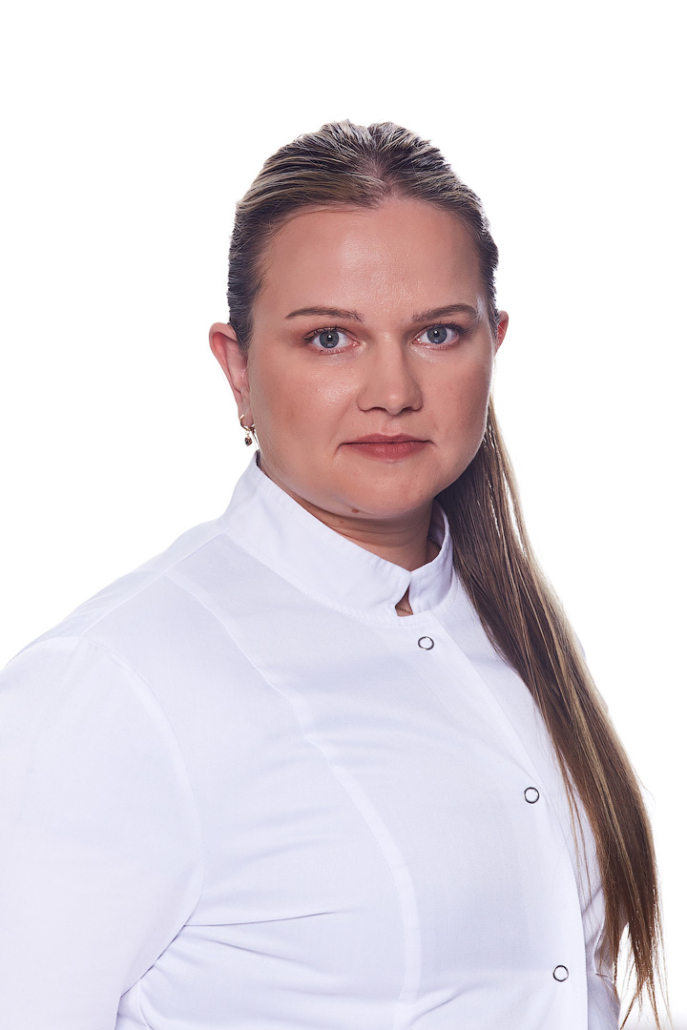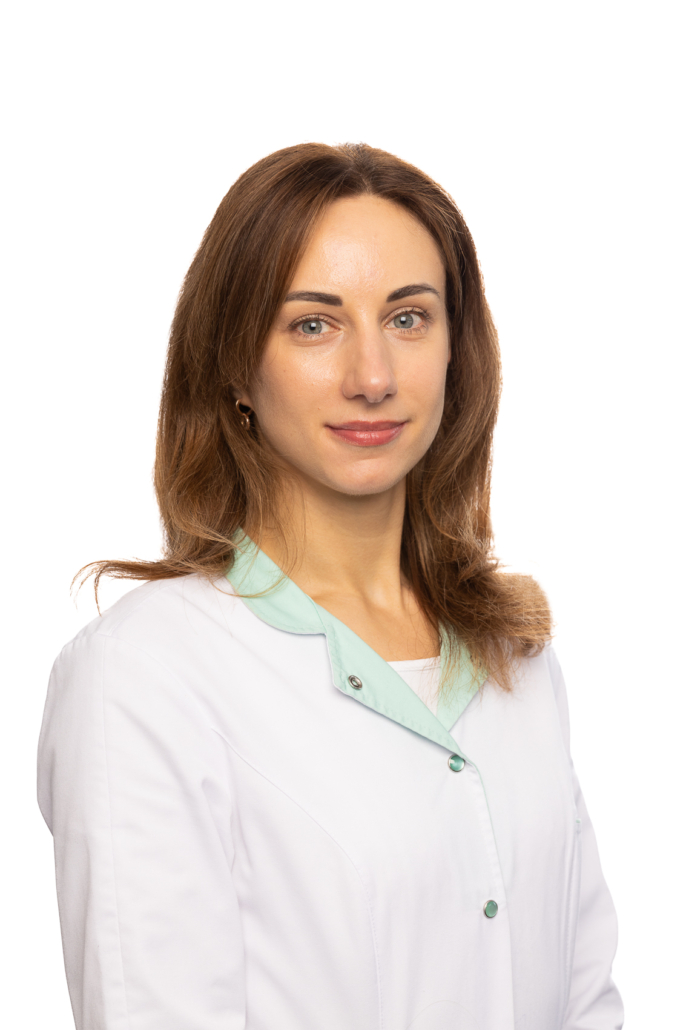Colonoscopy is the only, most accurate, and informative diagnostic method that allows examination of the large intestine from the inside, enabling timely diagnosis and treatment of diseases of the colon and rectum, including tumors.
- Colonoscopy, when performed by an experienced and skilled doctor using a modern endoscope, is a safe and harmless procedure for the patient.
- During a colonoscopy, a thin, flexible optical or video instrument is used to closely examine the inside of the rectum and the further parts of the large intestine up to the cecum.
- During a colonoscopy, the doctor may take small tissue samples (biopsies) from the lining of the colon to clarify the diagnosis. These samples are then sent to a pathology laboratory for microscopic examination. Taking biopsies is painless and does not cause significant discomfort to the patient.
- During a colonoscopy, if necessary, various diagnostic and therapeutic procedures can be performed simultaneously, such as the removal of polyps and tumors.
- With the latest generation endoscopes, it is possible to record the entire colonoscopy procedure on video and electronically store or transmit it using any modern image processing technology.
Colonoscopy is most commonly initiated in the following cases:
1) in the last 4-5 weeks, bowel habits have changed to diarrhea or constipation, or bowel movements have become difficult, painful, or markedly irregular;
2) there is blood or mucus mixed in the stool;
3) unexplained weight loss, weakness, anemia.
In the cases mentioned above and others, the decision on whether a colonoscopy is necessary is made by the doctor.
- Special bowel preparation is required before the procedure, which can be conveniently done at home using a special medication designed for bowel cleansing.
- To improve the quality of the colonoscopy and prevent discomfort, special medications are usually administered intravenously during the procedure. Some medications may cause drowsiness and slow reaction times for several hours. Patients are informed about the medication administration prior to the colonoscopy. It is important to remember that patients must avoid driving any vehicles for at least 12 hours after the colonoscopy.
- A colonoscopy usually lasts 30 to 60 minutes. The total time spent at the medical facility is 1.5 to 2 hours. After the examination, the patient can go home.
- Colonoscopy, diagnostics310.00 EURLarge intestine endoscopy (colonoscopy), diagnostics, with anesthesia.
Does not include biopsies or other necessary additional diagnostic procedures.
- Colonoscopy, diagnostic with biopsies430.00 EURLarge intestine endoscopy (colonoscopy), diagnostic, with anesthesia.
Includes biopsies or other necessary additional diagnostic procedures. The scope of the required diagnostic procedures during the endoscopy is determined by the physician performing the endoscopy.
- Colonoscopy, therapeutic650.00 EURLarge intestine endoscopy (colonoscopy) with anesthesia and polypectomy or other therapeutic procedures (foreign body removal, bleeding control, etc.).
Includes biopsies, polypectomy, or other necessary additional diagnostic or therapeutic procedures. The scope of the required therapeutic and diagnostic procedures during the endoscopy is determined by the physician performing the endoscopy.

Dr. Ivars Tolmanis

Dr. Laura Veide

Dr. Linda Sosāre

Dr. Aigars Vanags

Dr. Viktors Saule

Dr. Danute Ražuka-Ebela

Dr. Ieva Zivtiņa

Dr. Zane Dzērve
